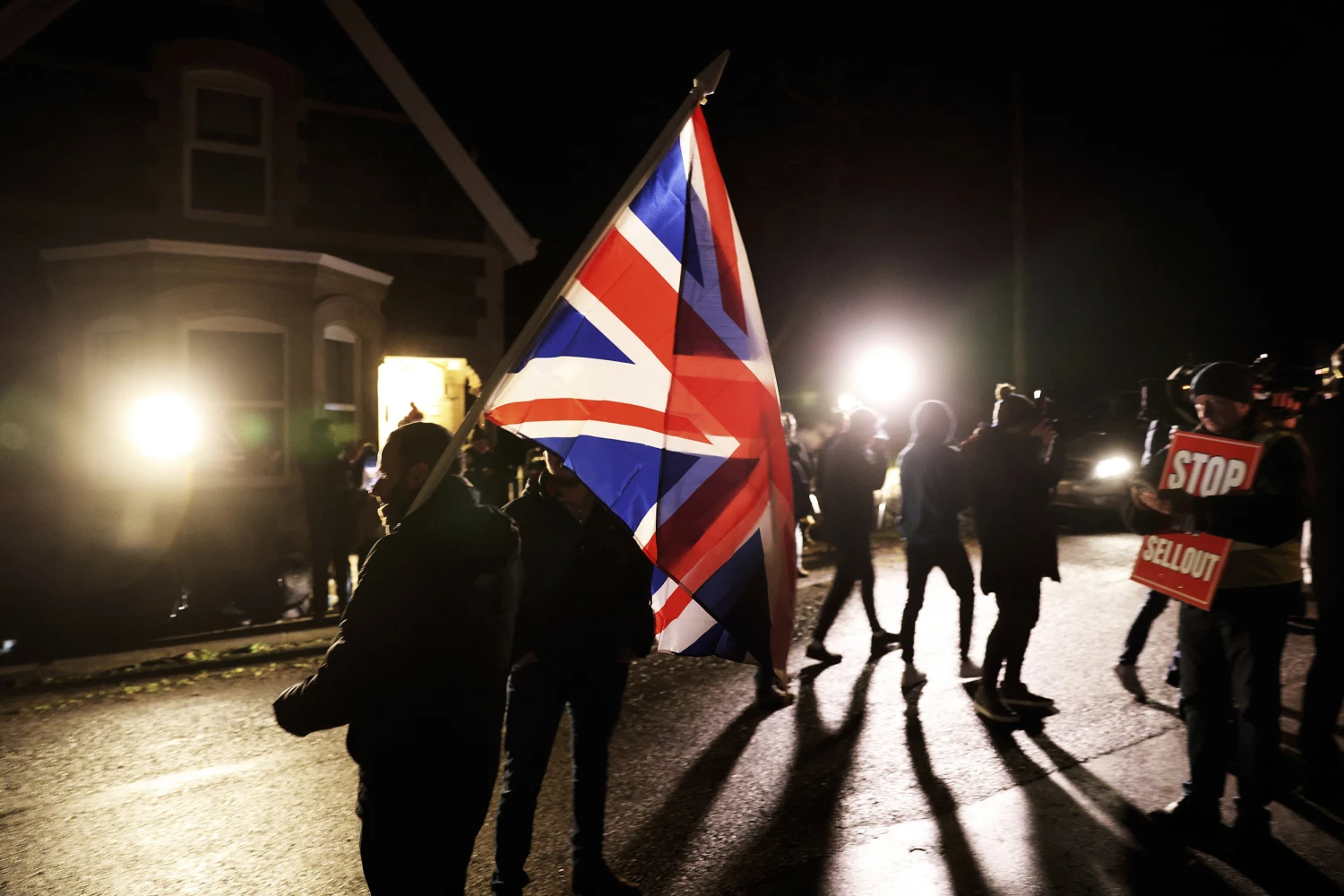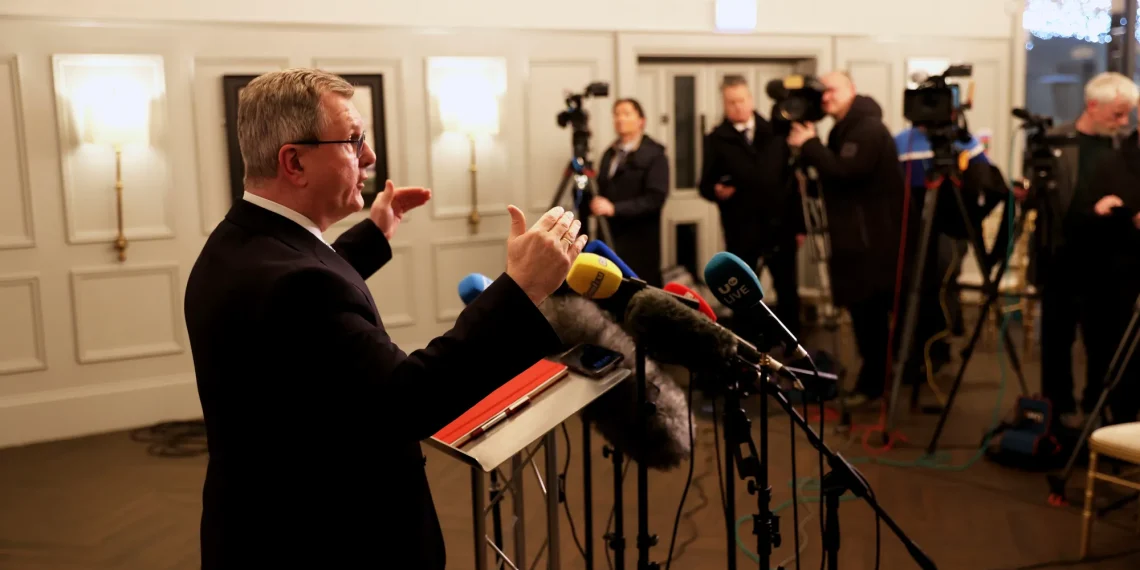The Democratic Unionist Party (DUP) in Northern Ireland declared an end to its nearly two-year government boycott, announcing a deal with the UK government. The move signals a return to power-sharing, potentially ushering in the first minister position held by a member of the nationalist Sinn Féin party.
The DUP’s boycott, initiated in 2022 over trade rules post-Brexit, strained the delicate power-sharing arrangement established under the 1998 Good Friday Agreement.
The DUP’s decision results from a package of new measures, creating a foundation for the party’s involvement in the Northern Ireland executive.
The package, subject to UK government commitments, aims to safeguard Northern Ireland’s place within the UK internal market, eliminate checks for goods within the UK and Northern Ireland, and ensure unfettered access for Northern Ireland businesses to the rest of the UK.
The Northern Ireland Protocol, an aspect of the post-Brexit deal, imposed customs checks on goods entering Northern Ireland from the UK’s mainland.
The DUP criticized the protocol, claiming it created a trade barrier and undermined Northern Ireland’s position in the union. Despite the challenges, the new legislation seeks to restore Northern Ireland’s place in the UK and end its automatic alignment with future EU laws.

The potential revival of power-sharing involves the recall of the Northern Ireland Assembly, with Sinn Féin expected to nominate the first minister for the first time due to its electoral victory in 2022.
The deal, supported by UK Prime Minister Rishi Sunak and Irish Taoiseach Leo Varadkar, is viewed as a “significant step” toward restoring stability and adhering to the principles of the Good Friday Agreement.





